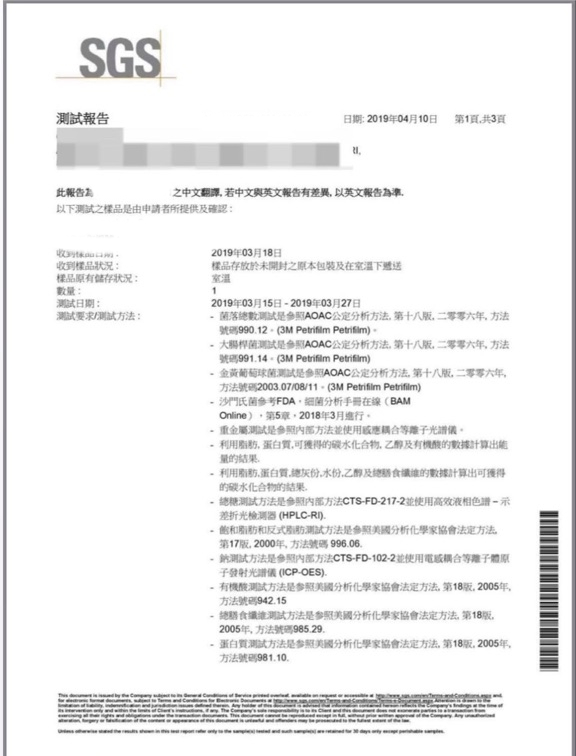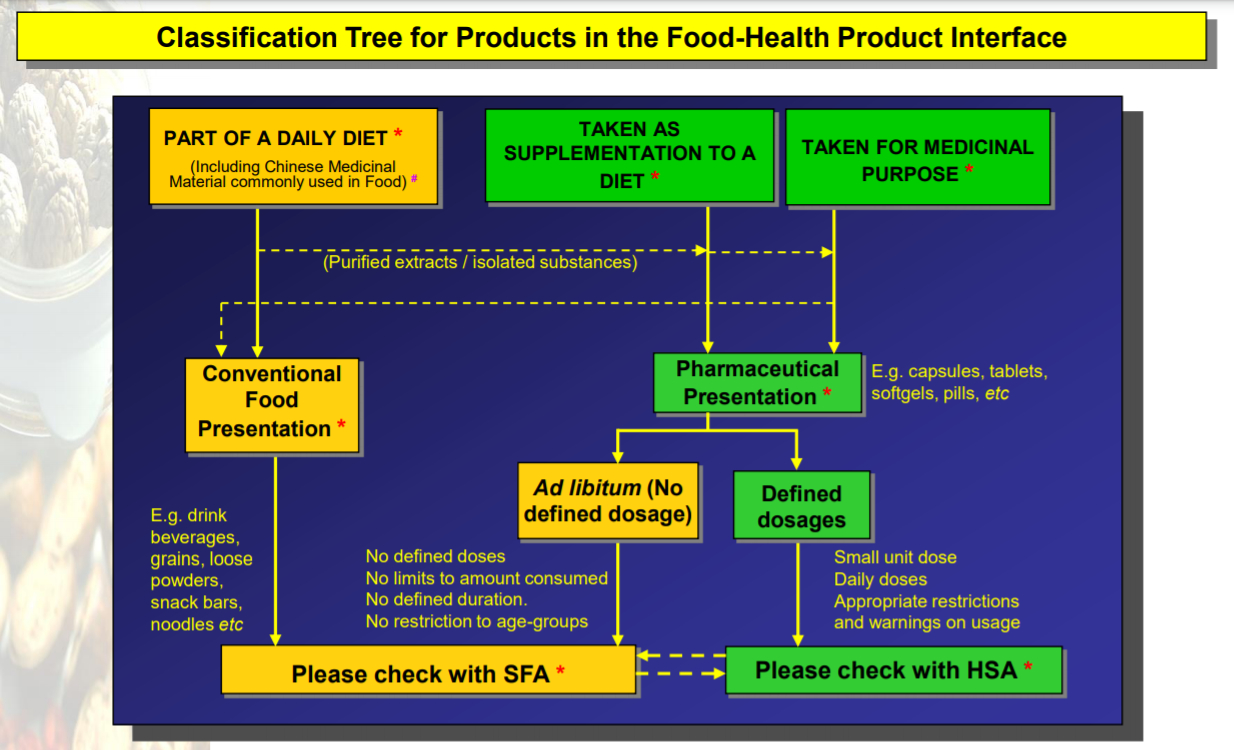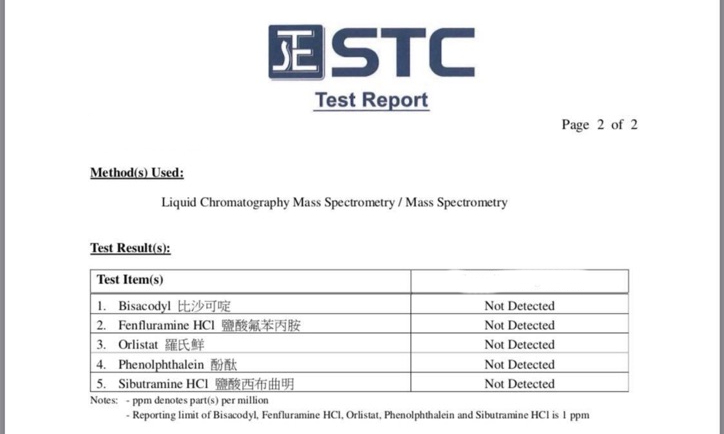If you had a shortcut to success, would you take it? What if it came with high risks? Out of desperation, many would say ‘yes’, and that is why the over-the-counter diet products (pills, drinks, consumables, etc.) industry continues to thrive despite reports on consumers having adverse side effects from taking them.
Banned substances found in diet products
In Singapore, the most recent diet product scandal involves Queenz Mango XSliim, a diet beverage product that contains two potent ingredients – sibutramine and sennoside. Sibutramine has been banned in Singapore since 2010, as it increases the risk of heart attack and strokes. Sennoside is a laxative that has adverse effects that include cramping, diarrhoea, and loss of essential minerals.
The Health Science Authority (HSA) received feedback from two consumers who experienced a sleuth of medical problems after taking the diet beverage – chest discomfort, increased heartbeat and dry mouth were some of the symptoms experienced.
HSA’s advisory to consumers was to stop taking the product immediately and to consult a doctor if symptoms persist. They also advised consumers to “be wary of products that carry exaggerated claims of fast weight loss without the need for exercise or diet control, or that deliver unexpectedly quick effects” in a press release.
In an effort to promote a healthier way of dieting, HSA continued on to say that there is no quick and easy way to lose weight, and wrote that “weight control should be achieved through a combination of balanced diet and appropriate exercise”.
The Slim 10 saga
This is not the first time diet supplements have come to the forefront of media attention because of their side effects. One prevailing case is the Slim 10 saga from nearly 20 years ago. The popular diet pill from China had nearly 20,000 people consuming it in Singapore and was even endorsed by local celebrity Chen Liping.
The Slim 10 pills were ordered to be removed from shelves after HSA detected two controlled substances and two banned substances that were not listed on the ingredient list submitted to HSA.
Consumers soon reported adverse effects, such as hepatitis and thyroid problems. One consumer developed jaundice and eventually died from liver failure.
One high profile consumer who experienced a life-threatening side effect was local TV actress Andrea de Cruz, whose liver was affected by the pills. De Cruz’s then-fiancé, Pierre Png, donated part of his liver to her in order to save her life. De Cruz filed a lawsuit against Slim 10’s importer Semon Liu and was awarded $1.6 million in compensation.
In a more recent interview with The New Paper, de Cruz mentioned that people would use her as a cautionary tale when consuming diet pills with claims that sound too good to be true. “I think I am the biggest and best example of how one could die from taking weight-loss pills bought off the shelf,” she said. “I’m thankful and grateful to be able to plant my feet on the ground each day and breathe.”
Reiterating what HSA has claimed, de Cruz encouraged those who wished to lose weight to take up exercise and a healthy diet, maintaining that “there is no fast way to lose weight”.
Too good to be true?
Though incidents like de Cruz’s are prolific and a stark warning of what could happen with diet pills, a number of my friends (myself included) are still willing to take that risk for a quick and easy way to lose weight.
“I simply do not have time to hit the gym frequently,” said Cassie, who has quite a demanding schedule working in an advertising agency. “Diet pills are just more convenient.”
I know I have also been a sucker for the convenience of being able to lose weight from just consuming pills or more. The ones Cassie and I have tried can be bought online, usually through home-based business owners who buy from a main distributor who imports these products from places like China, Taiwan and Thailand (I’m not saying these are MLM companies but you can make your own inferences).
While weight loss is the biggest draw of these products, it is the testimonials from “real buyers” that really help push products off shelves. Claims from other users just like me being able to drop a couple of kilograms just from consuming pills, drinks, snack bars, and more make each one sound like a miracle worker.

Another convincing factor? These sellers also claim that their products are certified safe for consumption. The products come with “stamps of approval” from authorities like GMP, HACCP, and the International 5 Star Health Care Brand, but unless you do your due diligence to check the authenticity of the certifications, who is to say these are real?
If they aren’t safe, then why are they being sold in Singapore?
Maybe the question then should be why are such products being allowed to be imported and sold here way before banned substances are found in them? The case of Queenz Mango XSliim revealed banned substances only after complaints had been made about side effects.
The same happened with four diet products in September this year. Nutriline Thinsline, Nutriline Cleansline, KiMiSo Dark Chocolate and Wholly Fitz PASSION LEMON TEA were found to contain sibutramine and sennoside (again) only after consumers had experienced adverse effects and tests were done on the products by HSA to confirm their ingredient list.

Both the HSA and Singapore Food Agency do have regulations over importing diet products. They can be classified as food-health products and broken down into three type: part of a daily diet, taken as supplementation to a diet, and taken for medicinal purpose.

Licensing is also required to import such products, although, since these products are also classified as novel food products, the onus is on the importer to conduct their own stringent assessments that include potential food safety risks, safety of production method, dietary exposure arising from consumption, detailed information on the materials used and how these processes are controlled to prevent food safety risks.
These assessments are then submitted to SFA, who will then review them to ascertain that potential food safety issues have been addressed. SFA also states that only some types of food imports require inspection upon entering the country, although it seems that the products SFA focuses on are usually fresh produce, meat and dairy.
Even with measures put in place, it seems that some substances usually go undetected, especially when importers do not properly declare the presence of such ingredients in their products.
But I can still get them shipped from overseas
Then there is also the other issue of global e-commerce. In 2016, a 22-year-old woman died from an overdose of diet pills she had ordered from a clinic in Thailand. She had eight times the therapeutic limit for phentermine in her blood, the active ingredient in the appetite suppressant, Duromine.
In Singapore, Duromine can be obtained after a doctor’s strict prescription. The drug does have some adverse side effects, which is why it is a controlled substance only given out as a last resort to those who do not just want to but must lose weight.
But quick searches on global e-commerce platforms show that Duromine can easily be bought for personal consumption, with no warning of having to declare the items to customs when shipped over from countries like the United States.
So what if I still want to lose weight?
The easy access to diet products is concerning. We could also address the underlying issue to this matter – unrealistic beauty standards perpetuated by media – but this could take a while. Instead, we are using this space as a warning to those who still insist on consuming diet supplements.
Singapore General Hospital LIFE Centre shared with HealthXchange Singapore that the most effective way of reaping the benefits of diet supplements is to get them prescribed by a doctor, so that health history is taken into consideration.
Dr Shanker Pasupathy, Senior Consultant and Director at LIFE Centre calls the prescription of diet pills “a huge responsibility”, since the side effects of taking such pills can cause a host of other problems. “Anyone on weight loss pills needs to be closely monitored by a physician, particularly with regard to blood pressure,” he said.
Like HSA and the many who have been badly affected by the consumption of diet pills, Dr Pasupathy offers up the same advice for anyone who will listen: exercise and a healthy diet are the only tried and true methods of losing weight efficiently.
Join the conversations on THG’s Facebook and Instagram, and get the latest updates via Telegram.




























